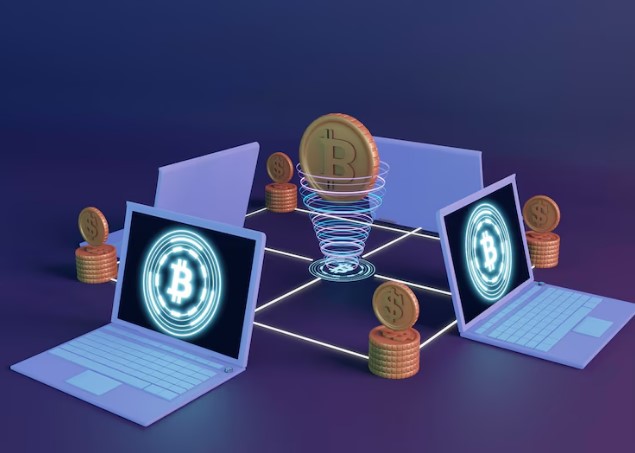In the wake of the 2008 financial crisis, a technological revolution was quietly brewing, poised to disrupt traditional financial systems and democratize access to financial services worldwide. This revolution, known as the crypto revolution, is driven by digital assets built on blockchain technology, offering new possibilities for innovation, transparency, and financial inclusion. From cryptocurrencies and decentralized finance (DeFi) to tokenization and digital identity, the crypto revolution is reshaping finance in profound ways, challenging the status quo and unlocking new opportunities for individuals and businesses alike.
At the heart of the crypto revolution lies blockchain technology, a decentralized ledger system that records transactions across a network of computers. Blockchain’s key innovation is its ability to create trust and transparency in a trustless environment, enabling peer-to-peer transactions without the need for intermediaries. By eliminating the need for central authorities, such as banks or financial institutions, blockchain technology offers greater security, efficiency, and autonomy over financial assets and transactions.
Cryptocurrencies, the most well-known application of blockchain technology, are digital or virtual currencies secured by cryptography, making them nearly impossible to counterfeit or double-spend. Bitcoin, introduced in 2009 by an anonymous person or group known as Satoshi Nakamoto, is the first and most prominent cryptocurrency, serving as a store of value and medium of exchange outside the control of central banks or governments. Since Bitcoin’s inception, thousands of other cryptocurrencies, known as altcoins, have emerged, each with its unique features, use cases, and potential impact on the future of finance.
Decentralized finance (DeFi) is another transformative application of blockchain technology, offering a wide range of financial services and products without the need for traditional banks or financial intermediaries. DeFi platforms enable users to lend, borrow, trade, and invest in digital assets using smart contracts and decentralized protocols, bypassing the limitations and inefficiencies of traditional financial systems. DeFi has the potential to democratize access to financial services, reduce transaction costs, and increase financial inclusion, particularly in underserved regions where traditional banking infrastructure is lacking.
Tokenization, the process of representing real-world assets as digital tokens on a blockchain, is also driving the crypto revolution, enabling fractional ownership and liquidity of assets traditionally illiquid or inaccessible. From real estate and art to commodities and securities, tokenization opens up new possibilities for asset management, investment, and exchange, unlocking trillions of dollars in value that were previously trapped in illiquid markets. Tokenization also facilitates peer-to-peer transactions, enabling individuals to buy, sell, and trade assets directly without the need for intermediaries.
Digital identity is another area where blockchain technology is reshaping finance, enabling individuals to control and manage their identity and personal data securely and transparently. By leveraging blockchain’s cryptographic properties, individuals can create self-sovereign identities that are portable, interoperable, and verifiable across different platforms and services. Digital identity solutions have the potential to streamline identity verification processes, reduce fraud, and improve access to financial services for underserved populations, empowering individuals to participate more fully in the digital economy.
Despite the promise of the crypto revolution, several challenges and barriers to adoption remain. Scalability, interoperability, and regulatory uncertainty are among the key issues facing the cryptoverse. Scalability refers to the ability of blockchain networks to handle a growing number of transactions without compromising speed or efficiency. Interoperability concerns the seamless integration and communication between different blockchain networks, enabling data and value transfer across platforms. Regulatory uncertainty poses risks to the growth and adoption of cryptocurrencies, as governments and regulatory bodies grapple with how to regulate this nascent asset class.
In conclusion, the crypto revolution is reshaping finance in profound ways, challenging the status quo and unlocking new opportunities for innovation, transparency, and financial inclusion. From cryptocurrencies and decentralized finance (DeFi) to tokenization and digital identity, blockchain technology offers a transformative framework for reimagining traditional financial systems and creating new possibilities in the digital economy. As the crypto revolution continues to evolve, staying informed and adaptable will be essential for navigating the opportunities and challenges that lie ahead.

